Security is—and always has been—a core concern for human beings. Even though we’re far less concerned about finding shelter and fending off saber-tooth tigers these days, the modern world brings a bunch of new worries, mainly due to the advances in technology.
The members of the sprawling AskReddit community recently spilled the beans about the security measures that they believe everyone should take, but often don’t. Scroll down to read their thoughts, including physical safety, how to avoid scams, and reminders to back up your important files and update your passwords.
#1
Not posting pictures of our vacations while actively on them, wait till you’re home.
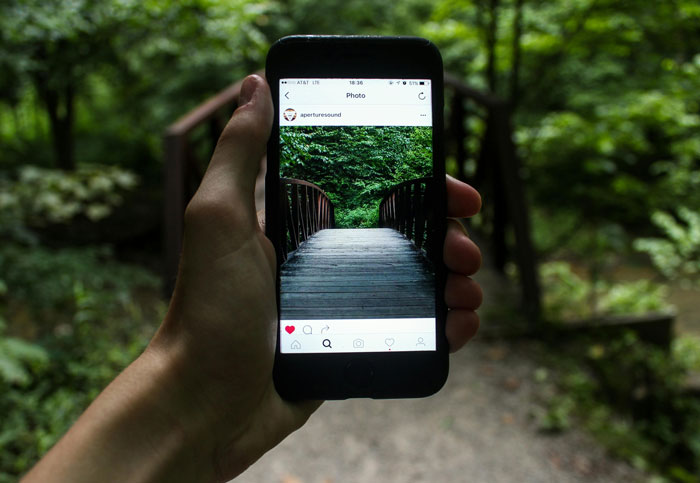
Image credits: Professional-Ask7697
#2
The same people who scream the government is tracking them are the same people who will install a tracking app on their phones to get a discount at a store they visit once.
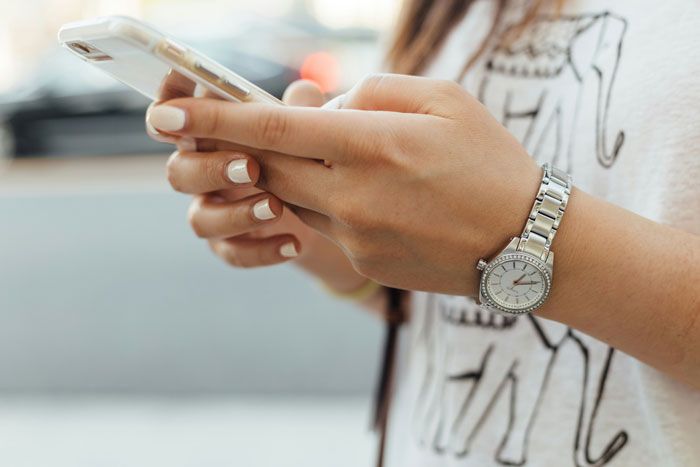
Image credits: islandsimian
#3
Stop wearing headphones or air pods all the time. Being able to hear what's around you might save your life.
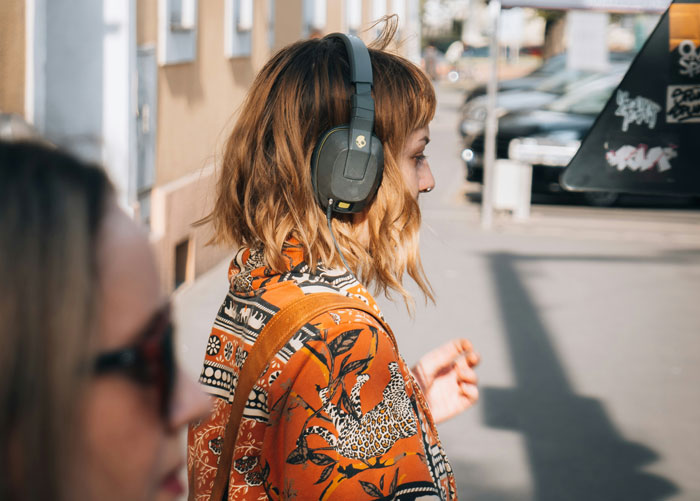
Image credits: thereminDreams
According to Statista, data breaches—security incidents that expose confidential and sensitive information to unauthorized parties—rank among the top concerns company leaders have. In the third quarter of 2024 alone, 422.61 million data records were leaked in breaches. This impacted millions of people globally.
“These incidents are complex; they impact individuals, organizations, and government entities, sometimes simultaneously. Because of how precious human attention is, companies want to have as much information as possible about consumers, and they're ready to pay a high amount of money to those who gather this information. Thus, individuals’ personal data goes a long way, and can end up in the hands of cybercriminals,” Statista explains.
AAG reports that, in 2024, data breaches cost the average business a whopping $4.88 million. In the United Kingdom, around half of all businesses experienced some form of cyber attack in 2023. In the first half of 2022, over 236 million ransomware attacks occurred around the world. And back in 2021, around half of American internet users had their accounts breached.
#4
Be aware of your surroundings when outside. Every now and again just take a glance behind you and to the sides. It's surprising the amount of people that are just oblivious to the world around them.
#5
Locking the car door as soon as you are in the car. Locking the car when you are filling up gas. Don’t leave valuables in the car overnight/lock the car. .
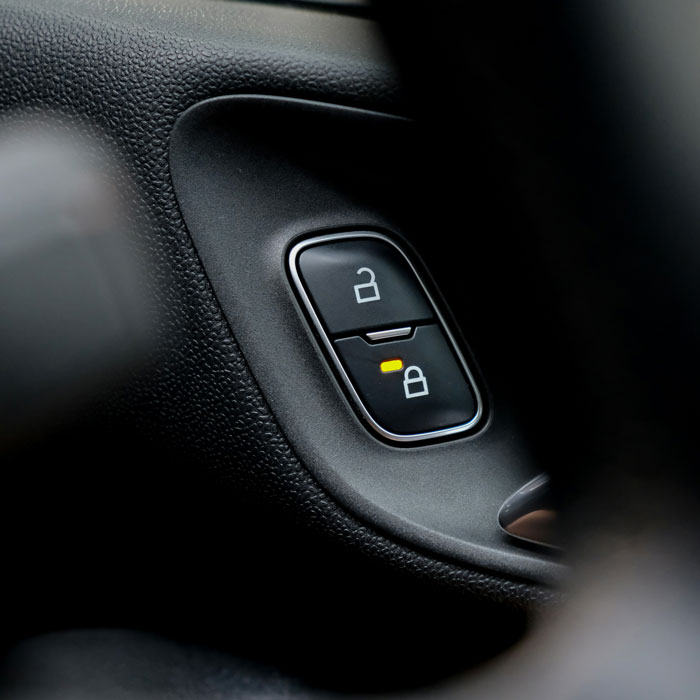
Image credits: GenealogyLover
#6
We should back up our files more often.
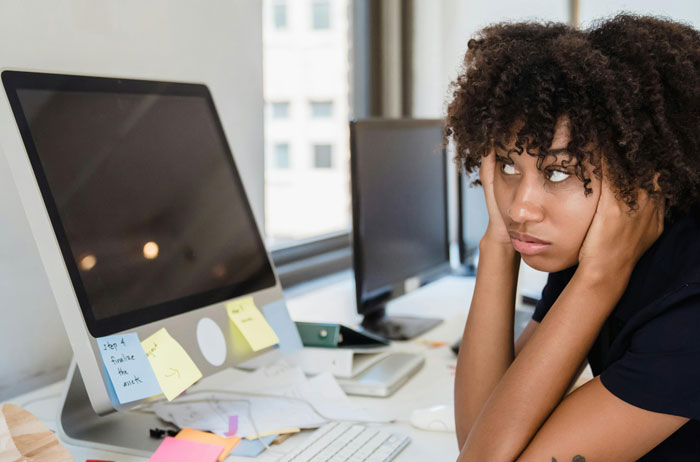
Image credits: Efarm12
Cybersecurity and scams are massive concerns. The former has been an issue since the dawn of the computer age, while the latter are as old as time itself. And it’s likely that the fight against scammers and other malicious actors will never be won.
As technology improves, criminals get access to new tools and come up with new ways to weasel people out of their hard-earned cash and private data. However, security professionals come up with new security protocols, too.
Meanwhile, the general public learns about the top news scams to be wary of… while falling prey to even newer ones. It’s a never-ending battle.
#7
Don't post photos of your kids on the internet. There was a time when it was probably fine to put those family photos up on Facebook and Instagram, but that time has passed. Just DM/email/text those to grandparents/relatives.
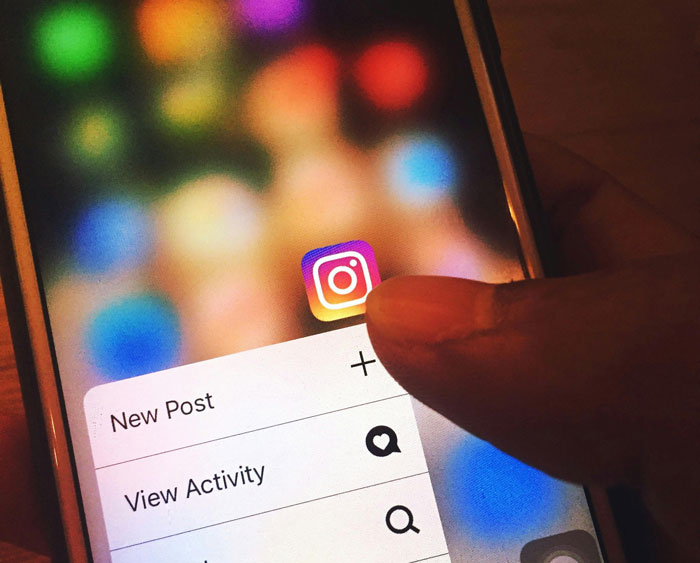
Image credits: RK5000
#8
Please don't answer those "fun questions" on Facebook that originate from some random group you've never heard of before, like "Who was your first grade teacher?" "Your first concert?", etc. These are generally password reset questions.
#9
Don't leave stuff visible in your car. It's amazing how many people get laptops stolen because they left them on the seat of their parked car.

Image credits: flyingcircusdog
One recent concern that has been popping up in casual conversations is that scammers might use artificial intelligence tools to clone your voice or those of your loved ones in order to upgrade their phone scams. Phone scammers rely on creating a sense of urgency during calls. If they have access to the voices of the people you trust, this could vastly expand the number of potential targets.
It’s one thing to hear a stranger saying they’re a relative of yours and that they’ve been in an accident. It’s another thing entirely when that stranger is generating text using your relative’s voice. In these situations, it’s probably best to hang up and reach out to your family and friends for advice. Check in with the person who’s supposedly in trouble using their actual phone, social media, or email. Scammers rely on panic to get you to make mistakes.
Staying calm and focused under stress is how you fight back. But, it’s easier said than done. You need practice. When you’re in the middle of a stressful situation, you tend to rely on your training and your gut. If your gut says that something is too good or bad to be true, then it likely is.
#10
Stop walking on the wrong side of the road. You walk *against* traffic, you bike *with* it. And don’t do it side by side. And don’t do it with headphones in, that only leaves taste, smell, and touch as your available senses to tell if a car is coming.
#11
Stop giving your DNA to private companies so you can find out you're 25% Scandinavian.
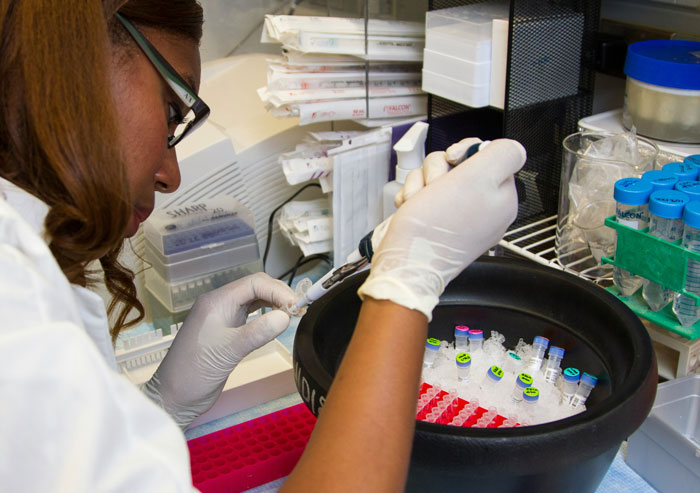
Image credits: Fowlest-of-the-hens
#12
Take your phone camera and walk through your house, recording everything. Open drawers and cabinets. Show closets. Move things around. Do this every few months. Save the video somewhere as a backup.
If you ever have a house fire or are burglarized, you now have a record of everything that was in your house at that specific time. It makes processing an insurance claim much easier.
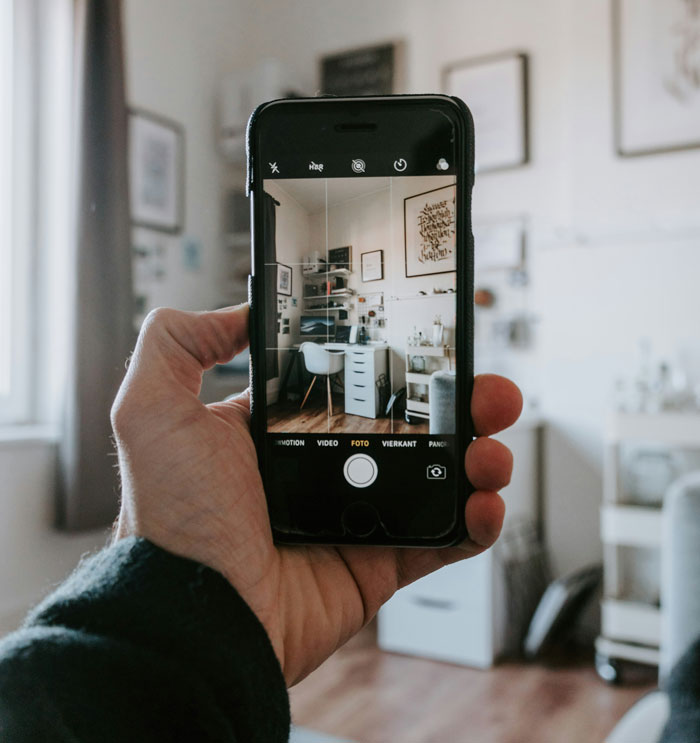
Image credits: sachmet
What do you personally think the biggest security concerns are in this day and age, dear Pandas? What do you do to stay safe online? When was the last time somebody tried to scam you, and how did they try to trick you? Let us know in the comments! And remember—keep yourself and your loved ones safe.
#13
Not repeating passwords.
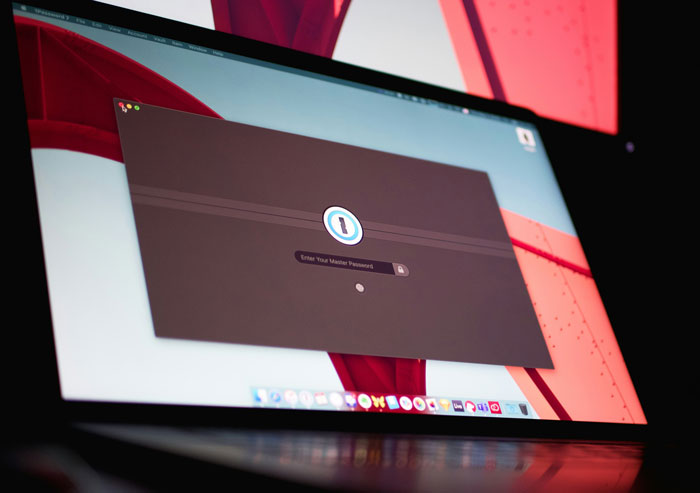
Image credits: spicyalts
#14
Many people just don't pay attention in parking lots as pedestrians. If you are walking, you should especially pay attention in parking lots. This means not walking too closely to parked cars, paying attention to lights, and paying attention to see if someone recently entered a car. You are most likely to be hit as a pedestrian while walking behind a car backing up. Many cars don't have back up cams, and some people just don't have the flexibility to turn around and look behind them.
I see it all the time in the winter, pedestrians walking around, looking at their phones while wearing a black jacket or coat. Get off your phone while walking and wear brighter colors. You are practically invisible at night and in dim light while wearing black.
#15
The Dave Ramsey crowd will hate this one, but.. Use a credit card that has good cyber security and protections instead of your bank card for normal usage. If you get your bank card hacked they have access to your money in your account and some banks are not good about investigating and getting you it back quickly. But there are some credit card companies that are REALLY good about it. I have my card ID stolen about a decade ago and they went after the people that did it and they served several years in prison. Didn't cost me a dime since the card company cleared all the charges. Could have been a nightmare if it was my bank account.
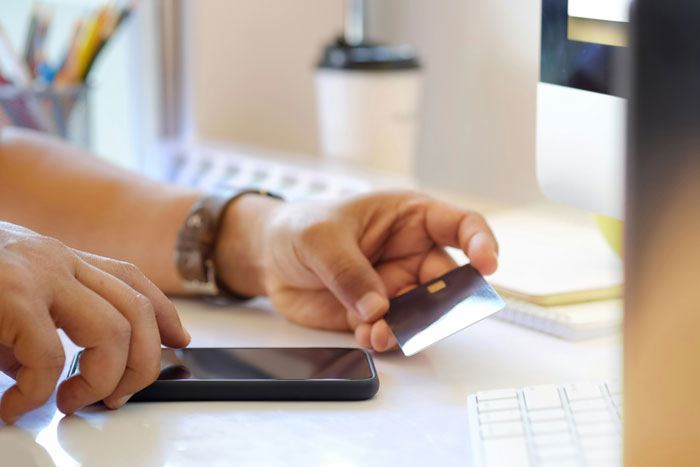
Image credits: rroberts3439
#16
Keeping pet cats from wandering unsupervised outdoors. The risk of catching diseases, getting injured, being hit by cars, or attacked by coyotes and other large animals in wild areas is just not worth it.

Image credits: Heroic-Forger
#17
Be willing to lose whatever you have on you. If someone wants it they’re gonna take it so just toss it and run. You’re not as good a fighter as you think you might be. Whatever’s in your pocket isn’t worth your life.
#18
If someone calls you claiming to be your bank or creditor or anyone else, hang up and call them back at a number you have independently verified. It does not matter if you recognize the caller ID, that can be spoofed. It does not matter if they seem to know what they’re talking about, that’s what data leaks do.
If you receive a letter about a debt or other sensitive matter, say your electric bill, don’t call the number on it without independently verifying it first. I’ve actually legit gotten fake water bills.
Do not redirect payments based on emails. In fact, it’s best not to direct them at all based on an email. Scammers will interject themselves into real estate transactions, contract negotiations, etc. They’ll use an email that looks similar to the one you’ve already been in contact with or gain access to the real one. If possible, discuss changes in-person or on-the-phone (at a verified contact number).
#19
Not running the “yellow” on a busy intersection.
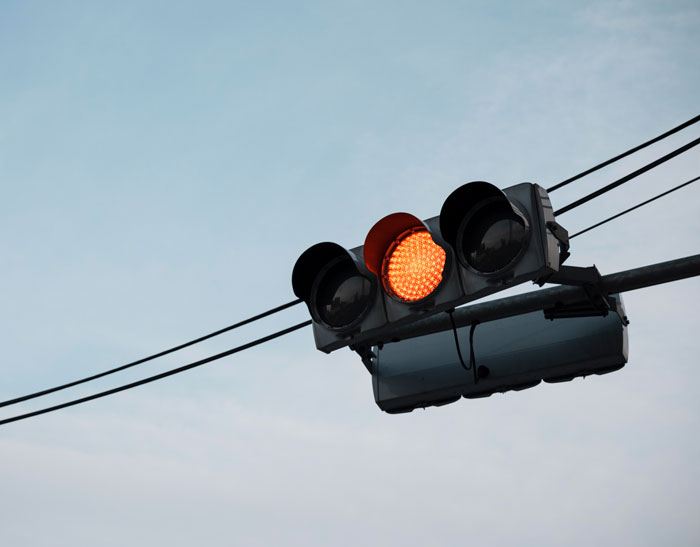
Image credits: Key_Introduction_302
#20
When walking to your vehicle in a parking lot, don't be on/looking at your phone. Lock your vehicle as soon as you enter it. Depending on the time of day and area, be cautious of how long you sit with your eyes glued to your phone in your car.
You could go your whole life without the above ever being necessary. But there's no reason not to be careful. Your safety is worth the bit of extra attention and caution. If you've got kids, you might consider passing along the advice.
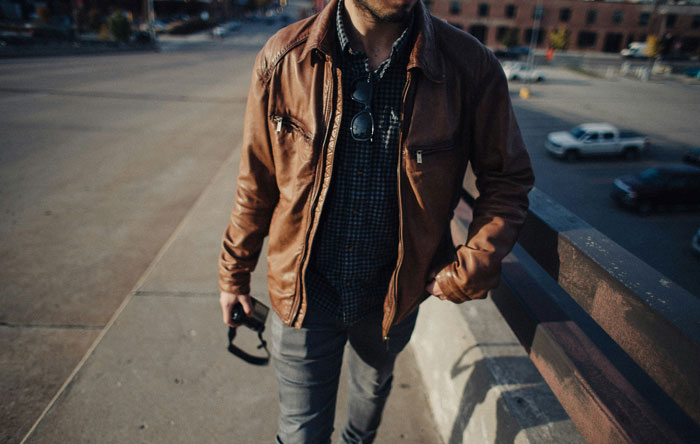
Image credits: Forgetful_Panda
#21
Logging into personal accounts on a work computer. If your keystrokes are monitored, danny the IT guy can get passwords to your gmail, your password manager, your bank accounts...
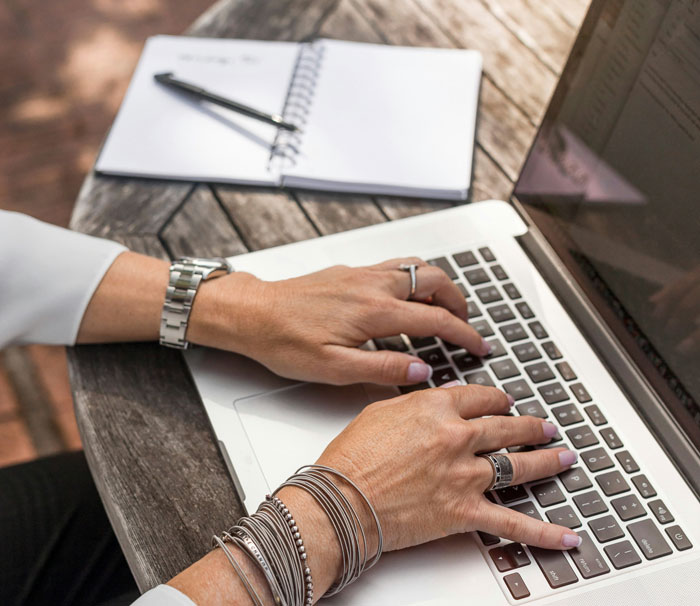
Image credits: FossilizedUsername
#22
If you have older kids, set up an Uber family account and let them know they can use it if they need to. As a dad of 3 teenage girls, I'd rather see they grabbed a safe ride home and didn't feel guilty about doing it than the possible alternative.
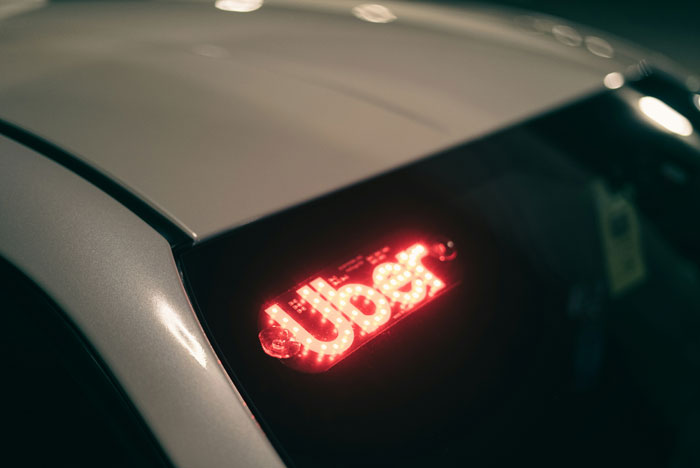
Image credits: PermanentSend1983
#23
Keep your doors locked when you're at home. When someone comes to your door, check who it is on your doorbell camera. There is no law that says you have to answer it.
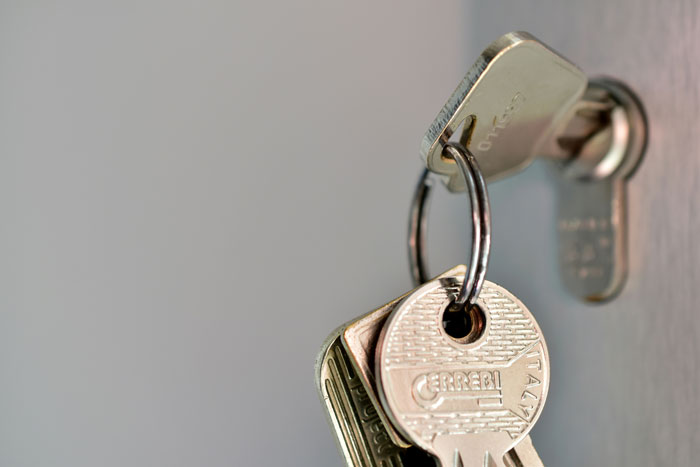
Image credits: WhatsMyName_1234
#24
I don't know if this counts but knocking on your hood/ looking under the hood before you start your car during cold weather. You may never know if a kitten or puppy is in there.
#25
In the US, freeze your credit. This prevents people from looking at it unless they have an existing business relationship with you (so bye-bye "pre-approved" credit card spam). And identity theft is much, much more difficult (they'd have to have your password to get into the account where the freeze is controlled from--they can't just use your Social Security Number).
*You can still check your own credit with a freeze applied.* Both the FICO scores many banks/cards offer and the free reports you're entitled to yearly.
This is **FREE**.
* Experian
* TransUnion
* Equifax
There's very little reason to pay for "credit locks." The only advantage is that their application is usually instant (both locking and unlocking). But they come with fees.
Seriously--almost nobody's credit needs to be accessible all the time. The freeze should be the default.
Unfreeze it if you are about to make a major purchase or apply for a credit card. Give it a few days (or even 15 minutes in my experience) to unfreeze rather than paying for a service to make it instant.
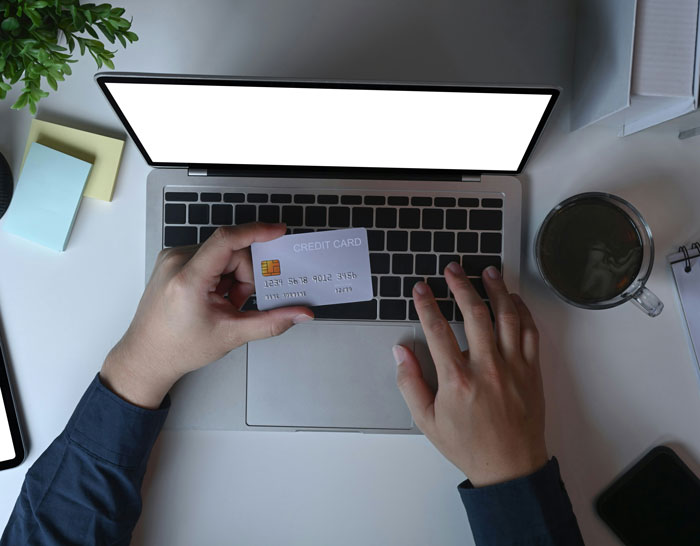
Image credits: SovereignGFC
#26
Have your lights automatically come on at night, especially when you're away. It gives the impression that someone is home which thieves do not want.
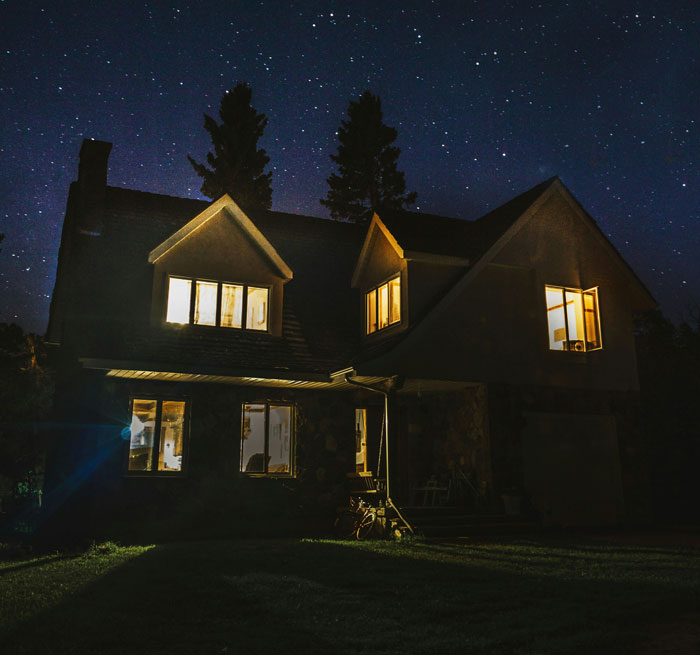
Image credits: Kevin-W
#27
Walking in areas that are well lit even if it takes longer to get to a destination.
#28
Steel-framed doors and good deadbolts.
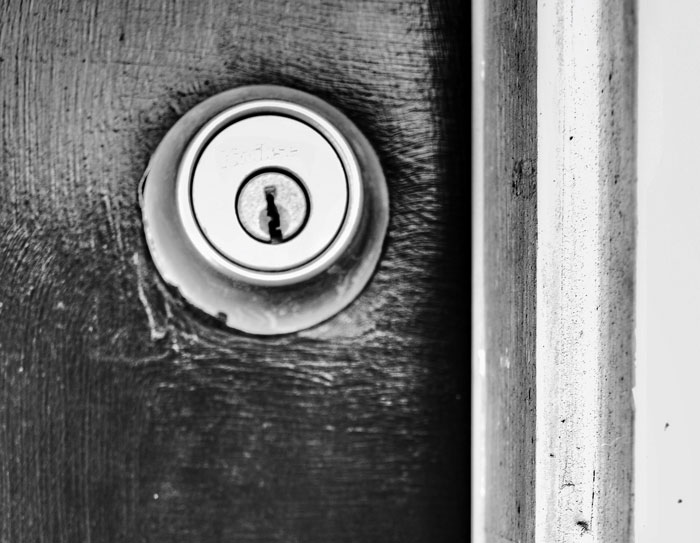
Image credits: Photodan24
#29
Everyone in your family should have an family identification word or phrase. If someone gets an appeal for money via text/email/phone/etc they ask for the family word. It's easy and will keep grandma & grandpa from sending gift cards to the police dept for your bail.
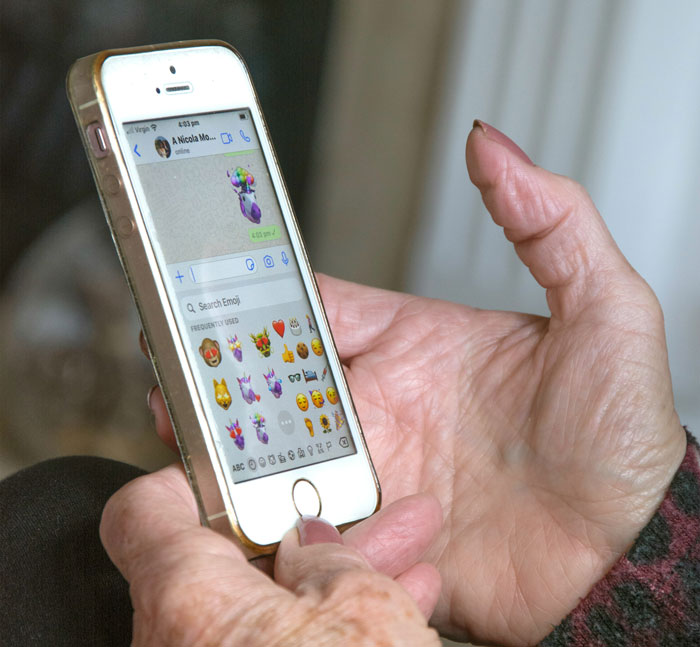
Image credits: qpgmr
#30
Stop giving your phone number and email address to everyone who asks for it.
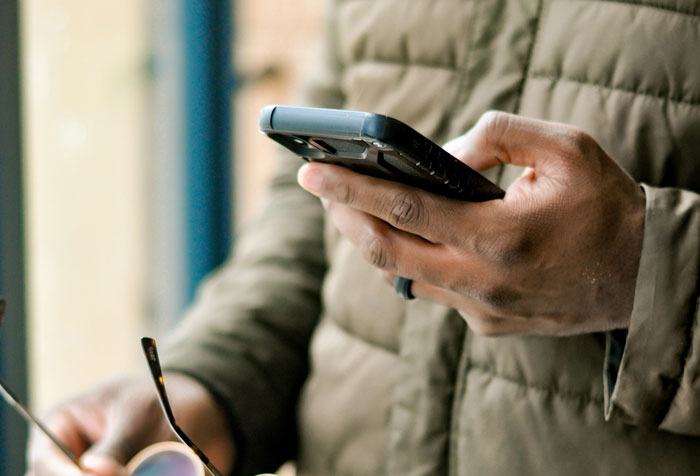
Image credits: venlaren
#31
Using an adblocker. Malicious ads are one of the most common ways to get malware on your device.
#32
Literally not using your real name on the internet.
#33
Do people have fire extinguishers in their kitchens? I don’t see them on makeover shows.
If you saw how fast fire can spread you’d have extinguishers everywhere.
#34
Not having our phone out in our hand when walking along the street. So easy to have it snatched.
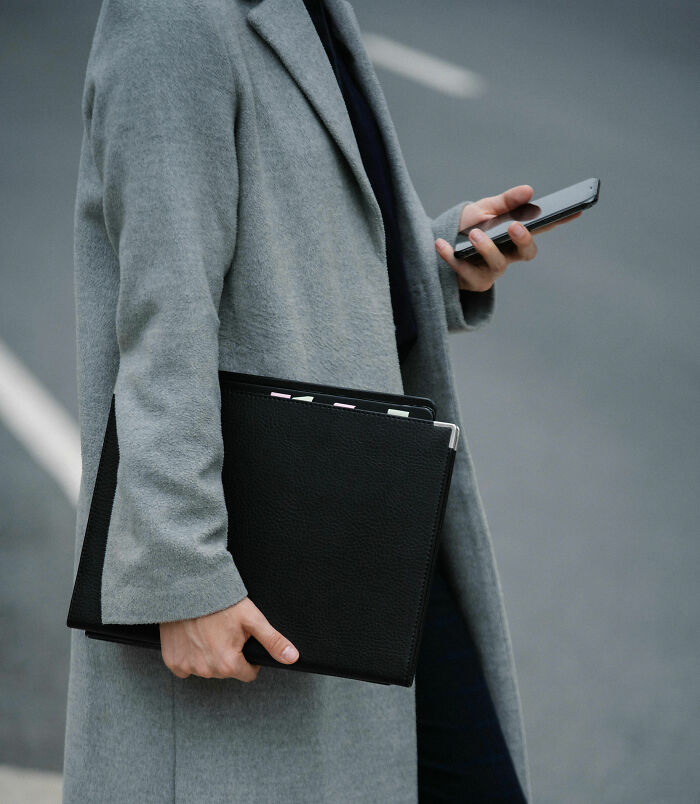
Image credits: LucyVialli
#35
We should really be using two-factor authentication more often. Like, people think a password is enough, but it’s not secure anymore.
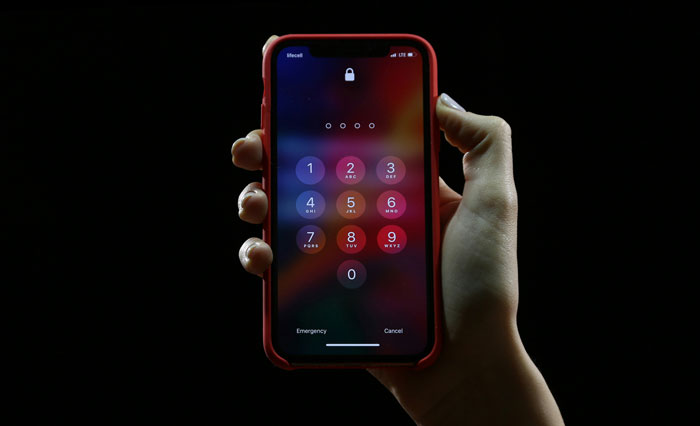
Image credits: wilkie_chidlerbe5p3
#36
Replace the screws that came with your entry door(s) latch plate with longer ones. I’m talking like 3”. That will secure the plate down into the framing itself rather than just the wood trim. Makes your door much harder to kick down if someone was intent on breaking in that way.
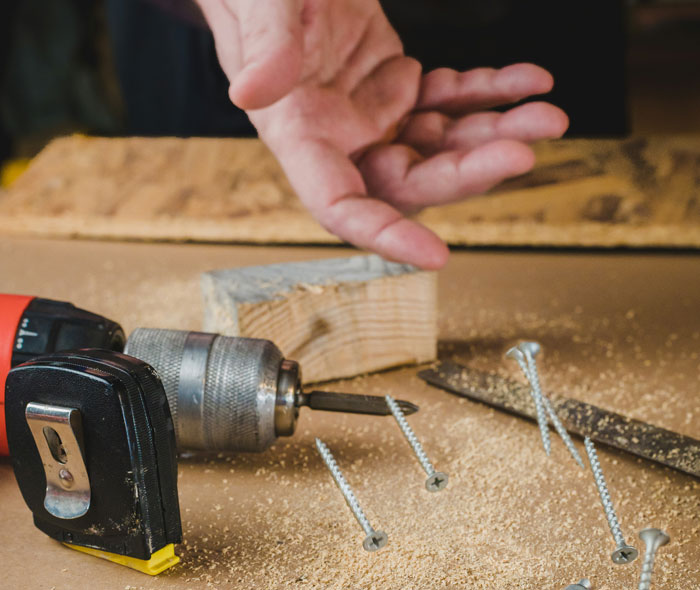
Image credits: skinnyribs
#37
As a former gym employee, lock your lockers, people. Seriously. And use a combination lock. It's too easy to loose a key for a lock that requires it.
Thieves actively hunt for open lockers filled with stuff. They won't touch locked lockers because its easier to target unlocked ones.
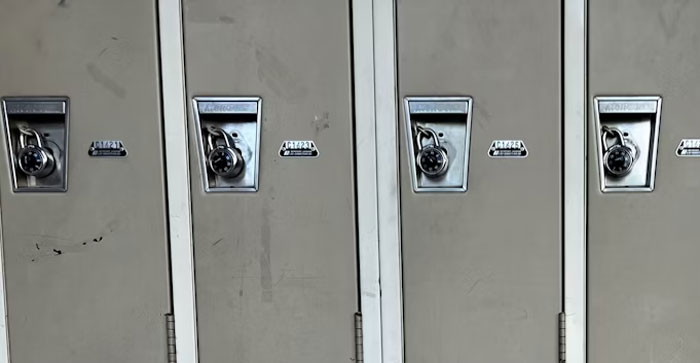
Image credits: beautitan
#38
A camera and/or motion detector light by the front porch and backyard.
#39
Ban yourself from all the casino’s, you can simply do it online and prevent yourself for going into heavy debt (speaking of experience).

Image credits: PossibleHot6848
#40
Not having your keys out BEFORE you get to your car or door...those precious seconds could make the difference!
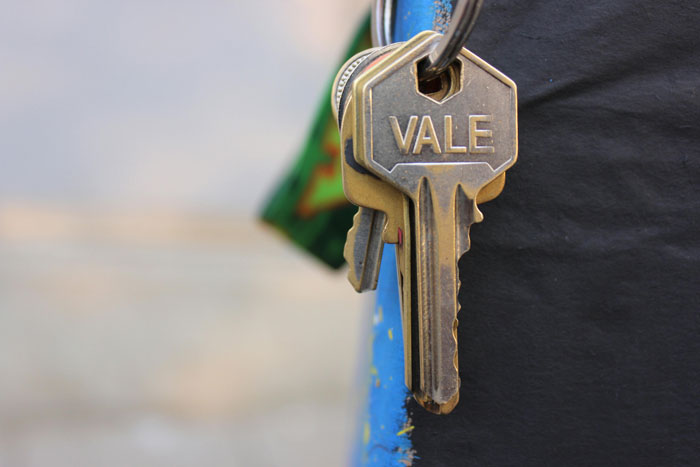
Image credits: peoplesuck64
#41
People don't understand the amount of information they give out in a single photograph. They think they are being secure, but there is a stunning amount of information they don't even realize can be gleaned.
Sure, take a pic of your new car and cover the plate..safe right? No..the type of trees, the neighbors houses, the direction of the shadows, reflections in windows and chrome, all of it can be used to pinpoint your actual location and therefore it's likely your identity too. At least you covered up the plate lol.
I would also say that walking around with your face in your phone is a security threat. Your situational awareness is in the toilet when your face is in your phone, and you have almost no sense of what it going on around you.
#42
Do not change your password for a site unless there has been a compromise. Requiring periodic password changes reduce the security posture.
NIST updated their recommendations in 2017, but it seems everyone is still doing periodic password changes.

Image credits: First_Code_404
#43
Only share personal information over the phone, on a phone call you placed, and dialed.
Do not share personal information, over the phone to someone who called you. It is very easy to spoof a phone number and make your Caller ID think your bank or credit card company calling you, when it is actually a scammer.
#44
Not escalating problems to the point that they require physical intervention.
#45
Using a vpn on public wifi. It’s surprising how many people don’t realize how exposed their data is without one.
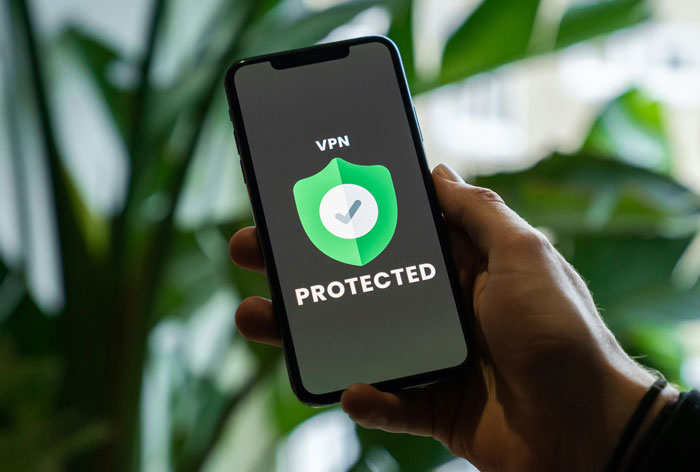
Image credits: drakelouis202
#46
Changing the locks on my house.. The previous owner is dead; his family lives far away. I"m not worried about random keys to my house out in the wild.
#47
Physically locking the garage door. Put a motion alarm on the gate. Put a physical stick barrier on your windows. Clear the bushes away from the hiding spot next to your front door. Put up a fence. Have all your packages delivered offsite.
#48
Change your routine. Don't always go back home using the same route or coming and leaving everyday at exactly the same time.
#49
I know that some/many take it, but still see enough that do not.
Wearing a bicycle helmet.
I used to ride A LOT on a bicycle. Still do. I used to hate my helmet because my hair started to itch really badly quite quickly after not wearing it for some time and it was a pain to always take it with me.
Then I had my first and only biking accident. Was 100 % my fault. But if it had not been for the helmet, what ended up as a scraped and bloody elbow, a wrist that hurt for two weeks and pain in my thumb for 3 weeks that made it almost impossible to grip stuff, I would have probably ended in the ICU that day with a severe head trauma.
Almost exactly 1 year before that, my best friend had also been in a similiar accident. He also wore his helmet and it definitely saved his life.
Currently studying and I see so many of my fellow students not wearing their helmet. Yeah, 99,9 % of the time nothing will happen. But when it does, a helmet might be the difference between a bruise on the arm and maybe a small concussion or life long brain damage.
#50
Using pass-phrases rather than traditionally-complex passwords.
You're never going to remember **5s9j%JGjekL(**
but you'll probably remember **inevitable-warming-buttocks-prot0col**.
#51
Set your text messages to delete after a set amount of time.
#52
Just being in good shape tends to ward off anyone who might want to harm you. If you have visible muscle, they'll probably leave you alone and failing that you can always run away better if you keep up with your cardio.
#53
Whenever possible, switch your SMS 2 factor authentication to an app based authenticator, or even a hardware security key. Doing so prevents SIM swapping identity theft schemes that allow a hacker to access your account by taking over your phone number.
#54
Cap those methane hydrates before they heat up too much and really shoot the temperature up.







